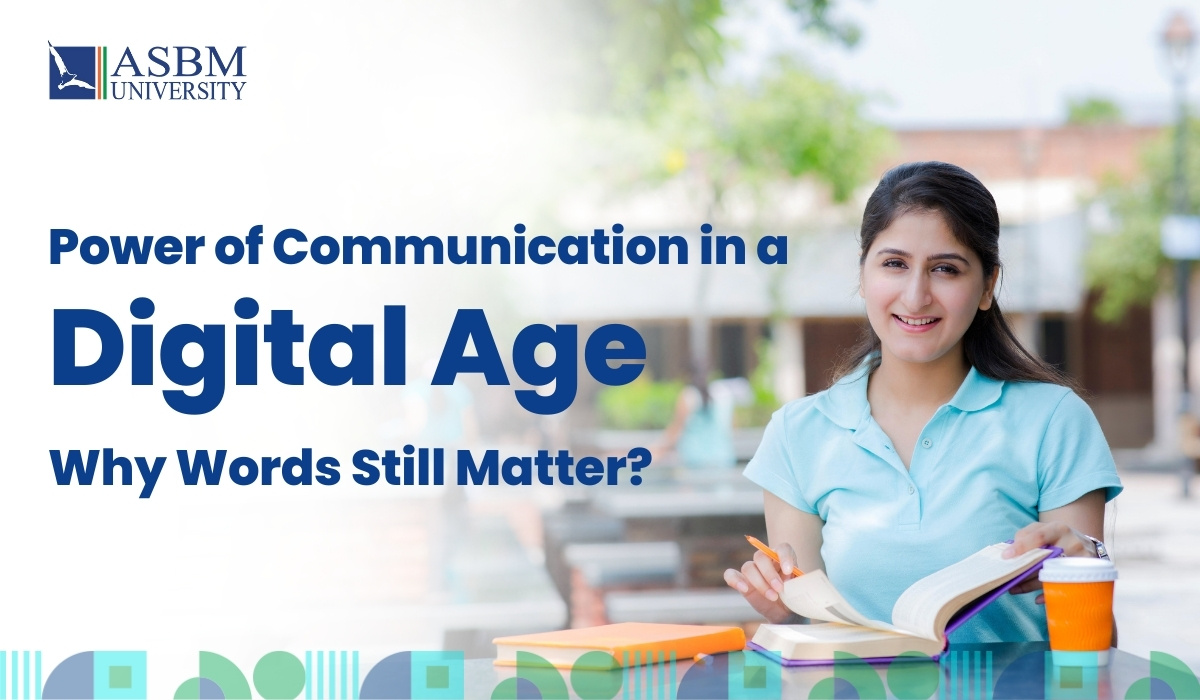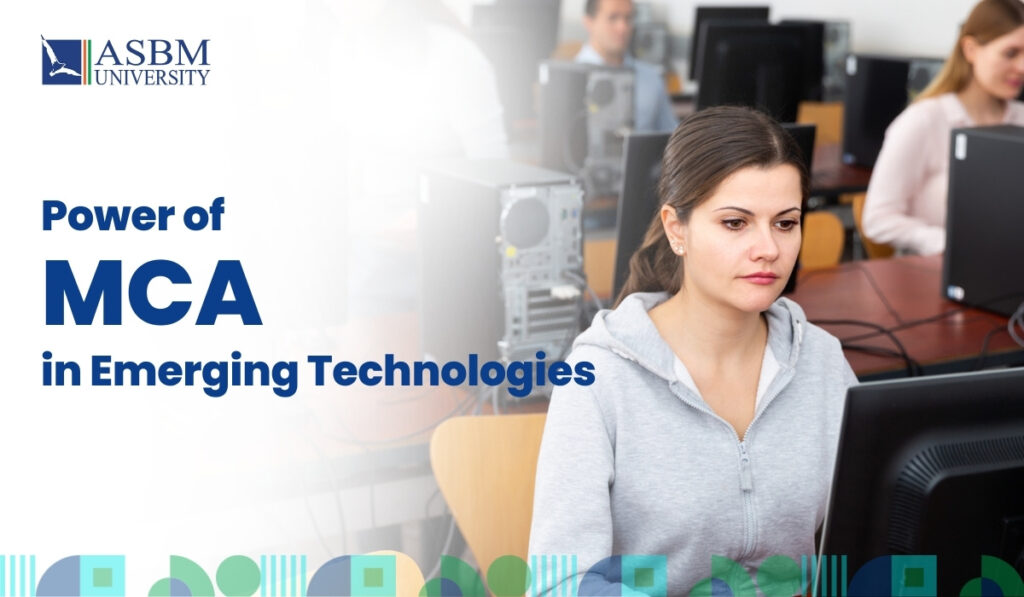The Enduring Power of Communication in a Digital Age – Why Words Still Matter?

The art of communication might seem quaint, even redundant in a world, saturated with information and instant connection. After all, with a plethora of communication tools and platforms at our fingertips, isn’t getting our message across easier than ever? However, a closer look reveals a different reality. Despite the abundance of communication channels, effective communication remains a critical challenge, impacting businesses, relationships, and even our understanding of the world itself.
This article delves into the enduring importance of communication in today’s digital landscape. We’ll explore the challenges that hinder effective communication, why even sophisticated Artificial Intelligence technology can’t fully replace human interaction, and the value of academic programs like B.A. in English or/and M.A. in English in fostering strong communication skills.
The Paradox of Plenty: Why Communication Remains a Challenge
While technology has greatly facilitated our ability to connect with others, it has also introduced new complexities in communication. The rapid advancement of digital tools and platforms means that we are constantly navigating a landscape filled with multiple channels, each with its own nuances and etiquette. As a result, the simplicity of direct, face-to-face conversations has given way to a more intricate web of interactions, where misinterpretations and information overload are common challenges. Here are some key challenges we face:
Information Overload: We are bombarded with messages from emails, social media, and constant notifications. This creates difficulty in focusing, filtering, and retaining information.
Misunderstandings: The lack of nonverbal cues in digital communication can lead to misinterpretations of tone, intent, and humour. This is especially true in culturally diverse environments.
Noise and Distractions: Our hyper-connected world creates a constant state of distraction. This makes it difficult to give messages our full attention, leading to missed details and incomplete understanding.
The Rise of Information Silos: With specialized communication tools and platforms, information can become siloed within teams or departments. This hinders collaboration and creates a fragmented view of the bigger picture.
The statistics paint a concerning picture. A study by Gartner reveals that a staggering 70% of company mistakes stem from poor communication. Similarly, a Pumble report highlights that 86% of employees and executives identify a lack of effective communication as a major cause of workplace failures.
These numbers underscore the high cost of ineffective communication. It leads to wasted time, missed opportunities, and damaged relationships.
The Limits of AI: Why Machines Can’t Replace the Human Touch
The rise of generative AI offers exciting possibilities for communication. AI-powered tools can translate languages, generate creative text formats, and even draft emails. However, these tools are far from perfect replacements for human communication.
Lack of Nuance: AI struggles to understand the subtleties of human language. It can miss sarcasm, cultural references, and emotional undertones. This can lead to sterile and potentially offensive communication.
Limited Creativity: While AI can generate text, it often lacks the originality and inventiveness that distinguish human communication. Effective communication often requires tailoring messages to specific audiences and situations – something AI currently struggles with.
Ethical Considerations: AI algorithms are trained on massive datasets of human communication. These datasets can reflect biases present in society, which AI tools can then perpetuate. Careful consideration needs to be given to the ethical implications of AI-driven communication.
Despite its limitations, AI has the potential to be a valuable communication augmentor. AI tools can streamline repetitive tasks like data entry and basic translation, freeing up human time for more strategic communication activities. The key is to leverage AI’s strengths while recognizing the irreplaceable role of human insight and empathy in effective communication.
The Power of Words: Why Programs Like BA and MA in English Matter
In this complex communication landscape, a strong foundation in language remains essential. Programs like BA and MA in English equip individuals with valuable skills that go beyond basic grammar and syntax. These programs cultivate:
Critical Thinking and Analysis: English degrees train students to analyze complex information, evaluate arguments, and form clear, concise conclusions. These skills are crucial for decoding information overload and communicating effectively in a world filled with competing narratives.
Active Listening: Effective communication is a two-way street. English programs emphasize active listening skills, enabling individuals to pay attention, understand different perspectives, and respond thoughtfully.
Writing and Editing Skills: The ability to craft clear, concise, and persuasive written communication is critical in all professions. Programs in English hone these skills through writing assignments, analyses of diverse texts, and revision exercises.
Understanding Cultural Context: Communication happens within a cultural framework. English degrees explore diverse texts and perspectives, helping individuals recognize cultural nuances and communicate across cultural divides. This is especially important in today’s globalized world.
Adaptability and Lifelong Learning: The communication landscape is constantly evolving. English degrees foster adaptability and lifelong learning skills. Graduates learn to research new communication tools, critically evaluate information sources, and adjust their communication style to suit different audiences and contexts.
Beyond the Statistics: The value of strong communication goes beyond avoiding mistakes and improving efficiency. Effective communication fosters:
Stronger Relationships: Clear and empathetic communication builds trust and understanding in personal and professional relationships. It allows us to connect with others on a deeper level and resolve conflicts constructively.
Innovation and Collaboration: Effective communication is the cornerstone of successful teamwork. It allows diverse ideas to converge, problems to be solved collaboratively, and innovation to flourish.
Informed Decision-Making: Clear communication ensures everyone involved has access to the necessary information to make informed decisions. This is crucial for navigating complex challenges in any field.
Cultivating Expertise in English: BA and MA Programs at ASBM University
ASBM University fosters excellence in English language studies through its thoughtfully designed BA (Hons) and MA programs. Both programs share a commitment to equipping students with the necessary tools to navigate the complexities of language and literature.
BA (Hons) in English: This program lays a strong foundation, structured on the CCFUG framework. Innovative teaching methods go beyond rote memorization, encouraging active participation and critical thinking. Whether exploring “Indian Writing in English” or delving into “Film Appreciation,” students develop a nuanced understanding of literature and its connection to the world around them. Courses like “Public Speaking” hone communication skills, while “Creative Writing” unlocks the potential for self-expression. This program equips graduates with a versatile skillset applicable to diverse professional paths.
MA in English: For those seeking to delve deeper, ASBM’s MA program offers a rich learning experience. Built on the CBCS pattern, the program allows for specialization through elective courses. Students can explore “Children’s Literature,” unveil the complexities of “Asian Literatures,” or hone their skills in “Writing for Advertising.” Experienced faculty with diverse backgrounds guide students through their chosen paths. Innovative teaching methods, coupled with a focus on research methodologies, prepare graduates for success in academia, professional writing, or communication-intensive fields. By combining a strong foundation with specialized knowledge, ASBM’s English programs empower students to become effective communicators, critical thinkers, and lifelong learners.
The Future of Communication: A Human-AI Partnership
The future of communication lies in a synergy between human and artificial intelligence. It’s not human or AI, it’ll be always Human and AI. AI tools can handle repetitive tasks and automate routine communication processes. Humans, on the other hand, bring creativity, empathy, and critical thinking to the table. By leveraging the strengths of both, we can create a future of more efficient, effective, and meaningful communication.
Here are some key considerations for the future:
Developing Human-Centred AI: AI communication tools need to be designed with human needs in mind. They should be intuitive, transparent, and easy to interact with.
Promoting Media Literacy: In an age of information overload, media literacy skills are crucial. Individuals need to be able to critically evaluate information sources, discern fact from fiction, and communicate responsibly.
Fostering Empathy and Emotional Intelligence: Technology cannot replace human empathy and emotional intelligence. We need to invest in programs and initiatives that cultivate these essential skills in both personal and professional settings.
Communication remains a fundamental human skill, critical in our digital age. While technology offers exciting possibilities, it cannot replace the human touch. Effective communication requires critical thinking, cultural awareness, and emotional intelligence – skills that programs like BA and MA in English can help develop. By embracing a human-centred approach to communication and utilizing technology as a tool, we can build a future of clearer understanding, stronger relationships, and meaningful connection.



